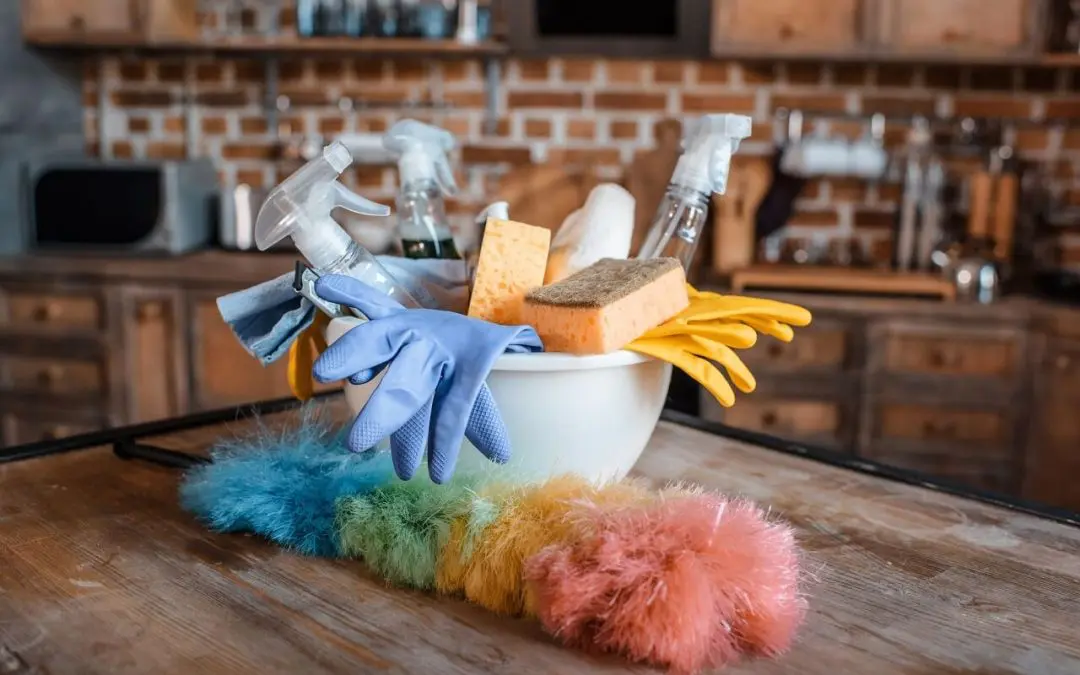Maintaining a clean home doesn’t have to mean using harsh chemicals or spending a fortune on store-bought products. More homeowners are turning to homemade cleaning supplies as a safer, more affordable, and eco-friendly alternative. With just a few simple ingredients, tackling everyday messes and feeling good about what’s being used in the process is possible.
Creating cleaning supplies at home offers full control over the ingredients, reduces waste, and often results in products as effective as commercial brands. Plus, there’s something deeply satisfying about knowing exactly what’s being sprayed on countertops, floors, and in the air.
Everyday Ingredients That Power Homemade Cleaning Supplies
Many common household staples have natural cleaning power. Vinegar, for example, is a natural disinfectant that easily cuts through grease and grime. Baking soda works as a gentle abrasive and odor neutralizer. Castile soap is a plant-based option that adds extra cleaning strength, while lemon juice offers a fresh scent and mild bleaching properties.
Cleaning Supplies for Every Room in the House
Homemade cleaning supplies may be customized for every area of the home. A vinegar-and-water spray works well for windows, mirrors, and wood surfaces. A mix of baking soda and dish soap in the kitchen creates a powerful paste for stovetops and stainless steel sinks. A splash of hydrogen peroxide may be added for extra sanitizing power for cutting boards or countertops.
Bathrooms benefit from DIY cleaners too. A combination of vinegar and dish soap can be sprayed on showers or tubs and left to soak before scrubbing. Toilet bowls respond well to a mix of baking soda and vinegar, followed by a quick brush and flush. Even homemade air fresheners made from water, essential oils, and a touch of rubbing alcohol can replace synthetic sprays.
The Cost-Effective Side of DIY
One of the most significant advantages of homemade cleaning supplies is the cost savings. Most recipes use ingredients already in the pantry or are easy to buy in bulk. A gallon of vinegar, a box of baking soda, and a bottle of Castile soap will go a long way. By reusing spray bottles and containers, it’s also possible to reduce single-use plastic waste, adding to the environmental benefits.
For those looking to simplify and declutter their cleaning cabinet, homemade solutions are ideal. Fewer products are needed to handle more tasks, and everything can be labeled and stored neatly in one space.
Things to Keep in Mind When Making Supplies
Although homemade cleaning supplies are generally safe and non-toxic, following a few basic guidelines is essential. Vinegar should not be used on natural stone surfaces like granite or marble, as its acidity may cause damage. Baking soda, while gentle, may scratch certain finishes if not used carefully.
Storage is also key. Depending on the ingredients, most DIY solutions can be kept in cool, dark places for a few weeks to a few months. Using amber or opaque bottles will help preserve essential oils and keep mixtures fresh. It is also a good idea to label everything with the date it was made and the ingredients used.
Homemade cleaning supplies make it easy to clean smarter, live healthier, and save money. With a few basic ingredients and a little know-how, you will maintain a clean home that feels fresh, safe, and sustainable—all without relying on harsh chemicals.
Frequently Asked Questions About Homemade Cleaning Supplies
Are homemade cleaning supplies really effective?
Yes. Many homemade cleaners use proven ingredients like vinegar, baking soda, and essential oils with natural antibacterial and deodorizing properties. While they may not replace industrial disinfectants in high-risk settings, they are highly effective for everyday household use.
Can vinegar replace all-purpose cleaner?
Vinegar is great for many surfaces, especially glass, tile, and laminate. However, it shouldn’t be used on natural stone or certain hardwoods. Castile soap mixed with water is a better alternative for those surfaces.
How long do homemade cleaners last?
The shelf life of cleaners depends on the ingredients. Simple vinegar and water mixtures will last several months, while cleaners made with fresh lemon juice or hydrogen peroxide should be used within a week or two.
What essential oils work best in cleaning supplies?
Tea tree, lemon, lavender, eucalyptus, and peppermint are popular for their antimicrobial properties and refreshing scents. Just a few drops will add both effectiveness and fragrance.
Do homemade cleaning products disinfect?
Some do have disinfecting qualities, especially those containing vinegar, hydrogen peroxide, or alcohol. However, for areas requiring strong disinfection—like after illness—it’s still best to follow CDC sanitation guidelines.
Brand Name Home Inspections provides inspection services to homebuyers and sellers in Northern California. Contact us to schedule an appointment for our services.

